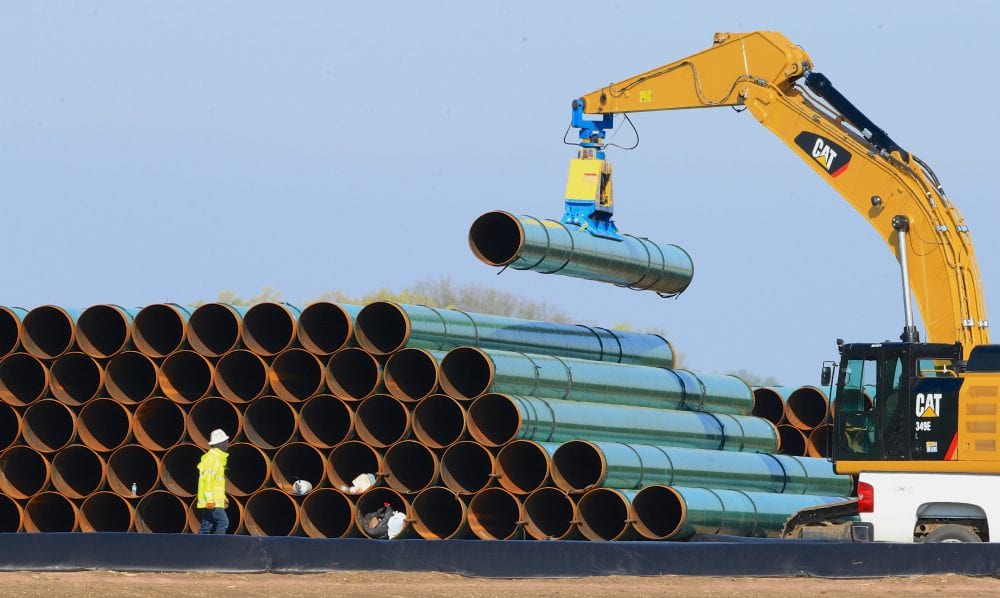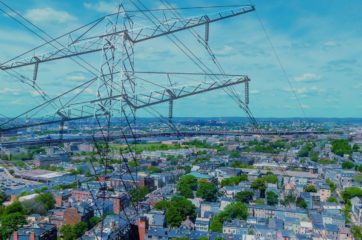by JONAH KURMAN-FABER POLICY AND RESEARCH FELLOW
On February 12th, the Boston Globe put out an editorial that blames environmental advocates and their “pipeline absolutism” as the main culprit behind the high electricity and heating prices that burdened Massachusetts residents during the Bomb Cyclone. The piece paints a gruesome picture of the destructive impacts of importing oil reserves from Russia in order to meet our peak energy demands. And it certainly is true that we used copious amounts of oil –– over a 13 day period in December and January, New England burned more barrels of oil than the rest of 2017 and 2016 combined.
However, the Globe’s narrative of pipeline expansion being the answer is simply untrue. Building additional natural gas infrastructure would not only fail to reduce energy and heating rates in the Northeast, but would also cost taxpayers and local businesses hundreds of millions of dollars, commit us to to an energy source that will be obsolete in the next 50 years, and have real security implications for local communities.
The Globe would like us to believe that ISO-NE burned oil during the cold snap because of a lack of natural gas capacity. However, this is far from the truth –– some of our largest pipelines were running at half capacity during the coldest periods of the snap. The prices surge for natural gas was a consequence of larger scale demand spikes, as Polar Vortex 2.0 affected about half of the US. Additional pipeline infrastructure will not solve regional issues of supply and demand.
As a result of this natural gas price surge, power plant operators found it cheaper to burn oil. This situation was exacerbated by the Pilgrim nuclear plant going offline, leading to further oil usage. But these cold snaps are not a viable reason to expand our natural gas pipeline capacity, and the Boston Globe fails to distinguish between supply constraints and capacity constraints. The Conservation Law Foundation writes, “the prospect of spending billions of dollars on pipelines that will sit idle 95 percent of the time and become obsolete in the next 10 to 15 years as our grid becomes increasingly clean defies all economic sense, environmental sense, and common sense.” A report released by Synapse Energy finds that Massachusetts ratepayers would be responsible for an additional $141 million in rate expenses, most of which is paid to out of state entities, from the proposed Access Northeast pipeline project
Furthermore, the report finds that existing clean energy and climate change related policies in New England are expected to reduce natural gas electricity usage by 27 percent in the next six years and reduce economy-wide natural gas usage by 20 percent by 2030.
Contrary to what the Boston Globe’s editorial board claims, the environmental movement is well aware of the realities of natural gas in Massachusetts. Exorbitant price hikes are in fact a consequence of our over-reliance on natural gas as our primary source of energy and heating, which exposes us to market volatility. Basic economics dictates that diversifying our energy portfolio by aggressively expanding renewables will not only achieve substantial emissions reductions, but will also grant households resilient and stable energy prices, even through our coldest periods.
 JONAH KURMAN-FABER COMMUNICATIONS AND POLICY FELLOW
JONAH KURMAN-FABER COMMUNICATIONS AND POLICY FELLOW
Jonah is currently a Masters candidate of Sociology at Northeastern University, where he completed his Bachelors. He developed an appreciation for the environment at a young age, growing up on Lake Massapoag in Sharon, MA. He recently held multiple positions at Oxfam America as a grasstops and grassroots organizer, prior to which he served as an outreach coordinator for the Mass Save program. His academic expertise includes renewable energy policy, urban development, and gerrymandering. In his spare time, Jonah enjoys playing/coaching Ultimate Frisbee, traveling, and eating food he can’t afford.









